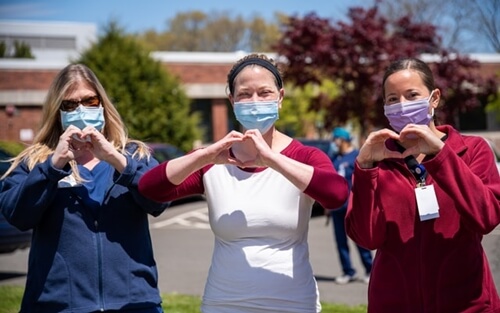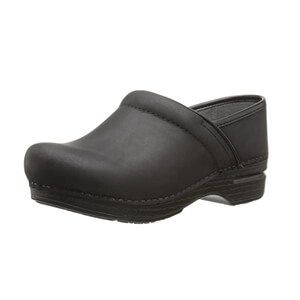With nurses at the front line of healthcare and putting themselves at increased risk over the past few years, it’s a common thought to wonder how long the life expectancy of nurses is and whether it’s higher or lower than the rest of the population.

You may think that because nurses work closely with sick patients and are potentially exposed to more infectious diseases, their life expectancy may be lower.
However, you also have to consider that nurses are well trained in staying safe around sick patients and understand the importance of a healthy lifestyle which can significantly increase anybody’s lifespan.
So do nurses live longer than the average person?
Who Are Nurses?
Nurses come from a range of backgrounds, but what’s interesting and important to take into consideration on whether nurses live longer is that 80% of nurses identify as being white.
Of the other 20%, the primary races are black and Asian, and only about 10% of all nurses are male.
There is a significant proportion of overall nurses that are white women, so the average life expectancy of nurses is heavily impacted by the average life expectancy of that demographic.
The overall life expectancy in the UK is 81.2 years; for men, it’s 79 years, and for women, it’s 82.9.
Some research has shown that white women have a lower life expectancy of 83.1 years, while Asian women have a life expectancy of 84.9 years and black women in the UK have a life expectancy of 88.9 years.
So with those figures, you’d expect a nurse in the UK to be closer to a life expectancy of 83 years old without other factors around their job to be accounted for.
How Long Do Nurses Live For?
Research shows that the life expectancy for nurses in the UK ranges from 78 – 83 years old, putting them well within the standard life expectancy for white women in the UK.
Being a nurse does not appear to negatively impact your life expectancy, and other research even shows that health care professionals have the lowest mortality rate of any major profession.
This may be surprising considering the types of environments that nurses work in and the stress, long hours, and lower-income for many.
What Is Contributing To Nurse’s Life Expectancy?

There is a range of factors that could be contributing to nurses’ life expectancy, both positively and negatively, which appear to be evening out an average nurse’s lifespan.
There is a difference in average life expectancy for nurses depending on what specific field they’re working in. In some cases, the difference can be as much as 8 years, so there are definitely types of nurses’ jobs that will negatively impact your life expectancy.
Health Information
One of the biggest contributing factors to a nurse’s life expectancy is the enhanced medical knowledge that they have and the easy access to other health professionals that can assist or provide advice.
Nurses are more likely to get all required vaccinations, get medical checkups when there are issues, and remember to keep taking their medications when required. While these may seem like basic things, they can have a major impact on your life expectancy, and many people don’t get or do all of these things.
What’s also interesting is that these benefits get passed along to a nurse’s family, with families that have a nurse or other healthcare professional having a 10% higher chance of reaching 80+ years old with no other factors involved.
Healthier LifeStyles
More often than not, nurses will live healthier lifestyles as they see many of the impacts of an unhealthy lifestyle day to day. They have the knowledge and encouragement to ensure they pick healthy options and stay away from things that can impact their life expectancy.
Around 22% of nurses smoke, which is a major health issue, but that percentage is one of the lowest across any profession, which boosts the average life expectancy for nurses and contributes to better overall health.
Heavy alcohol use or abuse is another significant factor in a lower life expectancy and overall poor health. Healthcare professionals have one of the lowest alcohol abuse rates of any professional at 4.4%.
Detachment
Stress is a major contributing factor to poor health, and a nurse’s job would typically be considered very stressful, especially when dealing with very sick or dying patients.
Most nurses who discuss stress and patient attachment indicate that they’ve found ways to detach from their patients and not get emotionally involved in the patient’s care or potential death over the years.
While the care provided is high quality, nurses are friendly, helpful, and caring. They are working a job and once they’ve found the required skills will not become attached, so if there are issues, the stress or sadness from patient issues doesn’t heavily impact their stress levels.
Extra Time To Recover
Many nurses are working longer hours per day worked but fewer days worked each week, which provides a better work-life balance for emotional recovery and enjoyment of life, which contributes to a longer overall life expectancy.
A typical work schedule for nurses is a 12-hour shift that may be worked 3-4 days per week, which gives 1-2 extra days off per week than the average worker in the UK.
While the shifts are longer at 12 hours, that only accounts for an extra 3-4 hours in a day which many people would prefer in exchange for having shorter workweeks.
Having that extra time not only gives you time to destress but also gives you time to look at any issues in your life mentally or physically and get them checked on. Ignoring health issues is a primary factor in shorter life expectancy.
Physical Activity
Many nurses, especially when working in hospitals, are typically on their feet for large parts of the day, performing a range of duties but constantly moving and being active. This is part of why there are specialty nurse shoes to accommodate comfort while being active all day.
Sedentary lifestyles are another significant factor in a lower life expectancy, so nursing professionals that provide a high level of activity throughout the day provide a generally higher life expectancy.
This is further backed up by the life expectancy of nurses working in GP or small offices, as their life expectancy is often lower than a nurse working in a hospital. A small office doesn’t provide constant movement over a large area, and usually, nurses in these areas will be sitting for long periods of time.
Do Nurses Live Longer Than The Average Population?

Nurses have an overall life expectancy of 78 – 83 years old, with the average population having a life expectancy of 81.2 years old. So for some nurse professions, they do have a slightly higher life expectancy.
It may well be surprising to many people that nurses do live slightly longer due to their increased stressful jobs than average and their daily interaction with sick people.
The major components in nurses living longer appear to come down to their better work-life balance that reduces stress overall, healthy choices such as limited smoking or alcohol consumption, and living a much more active life than many other workers.
Frequently Asked Questions
Do nurses live longer than the general population?
As a nurse, you may have wondered if your chosen profession has any impact on your lifespan. While there isn’t a definitive answer, several factors suggest that nurses may indeed live longer than the general population. Nurses tend to have a good understanding of healthcare practices, leading to better self-care and preventive measures. Additionally, their work often involves regular physical activity, which contributes to overall health and longevity. Moreover, the rewarding nature of nursing can promote job satisfaction and mental well-being, both of which are associated with better health outcomes. However, it’s important to remember that individual lifestyle choices and other personal factors also play a significant role in determining lifespan.
What are some health benefits of being a nurse?
Being a nurse can bring numerous health benefits. One of the main advantages is the opportunity to lead an active lifestyle. Nurses are often on their feet, constantly moving and engaging in physical activity, which can improve cardiovascular health, increase stamina, and help maintain a healthy weight. Moreover, working in a healthcare environment exposes nurses to various health knowledge and practices, allowing them to develop a strong foundation of healthcare literacy. This knowledge can empower nurses to make informed decisions about their own health, leading to better self-care and disease prevention. Additionally, the fulfilling nature of nursing can contribute to positive mental health and overall well-being.
How can nurses maintain their health and well-being?
Nurses play a critical role in patient care, but it’s equally important for them to prioritize their own health and well-being. To maintain good health, nurses can focus on a few key areas. First and foremost, proper self-care is essential. This includes getting enough sleep, eating a balanced diet, engaging in regular exercise, and managing stress effectively. Nurses should also be diligent about practicing infection control measures, such as hand hygiene and following safety protocols, to protect themselves from workplace hazards. Additionally, seeking support from colleagues, friends, or support groups can help manage the emotional demands of nursing and foster a sense of community. Lastly, making time for hobbies, relaxation, and pursuing activities outside of work can contribute to a healthy work-life balance.
Are there any occupational hazards that nurses should be aware of?
Like any profession, nursing comes with its own set of occupational hazards. Nurses should be aware of these risks and take appropriate precautions to protect themselves. Some common hazards in nursing include exposure to infectious diseases, needlestick injuries, back strain from lifting or transferring patients, and workplace violence. Nurses should receive proper training on infection control measures, adhere to safety protocols, and use personal protective equipment to minimize the risk of exposure to pathogens. Proper body mechanics and safe patient handling techniques can help prevent injuries. Additionally, healthcare facilities should have policies and procedures in place to address workplace violence and provide support to nurses in such situations.
You may also like
What is the most comfortable shoe of all time?
Welcome to NursingShoesHunt.com, your trusted source for all things related to nursing shoes and invaluable…
Dansko Women’s Pro Xp Mule Shoe Review
When one is searching for some comfortable shoe options, one of the best options that…
Are Ballet Flats Better Than Heels?
Picking the right shoes for your daily life may mean deciding between ballet flats or…
Does nursing have math?
In this article, we’re diving into a common question that often arises among aspiring and…
The Diversity and Inclusion Imperative in Nursing: Building a More Representative Workforce
Importance of Diversity and Inclusion in Nursing Diversity and inclusion are not merely concepts; they…
What is the hardest course in nursing school?
A question that often looms large for nursing students and those considering this challenging yet…






